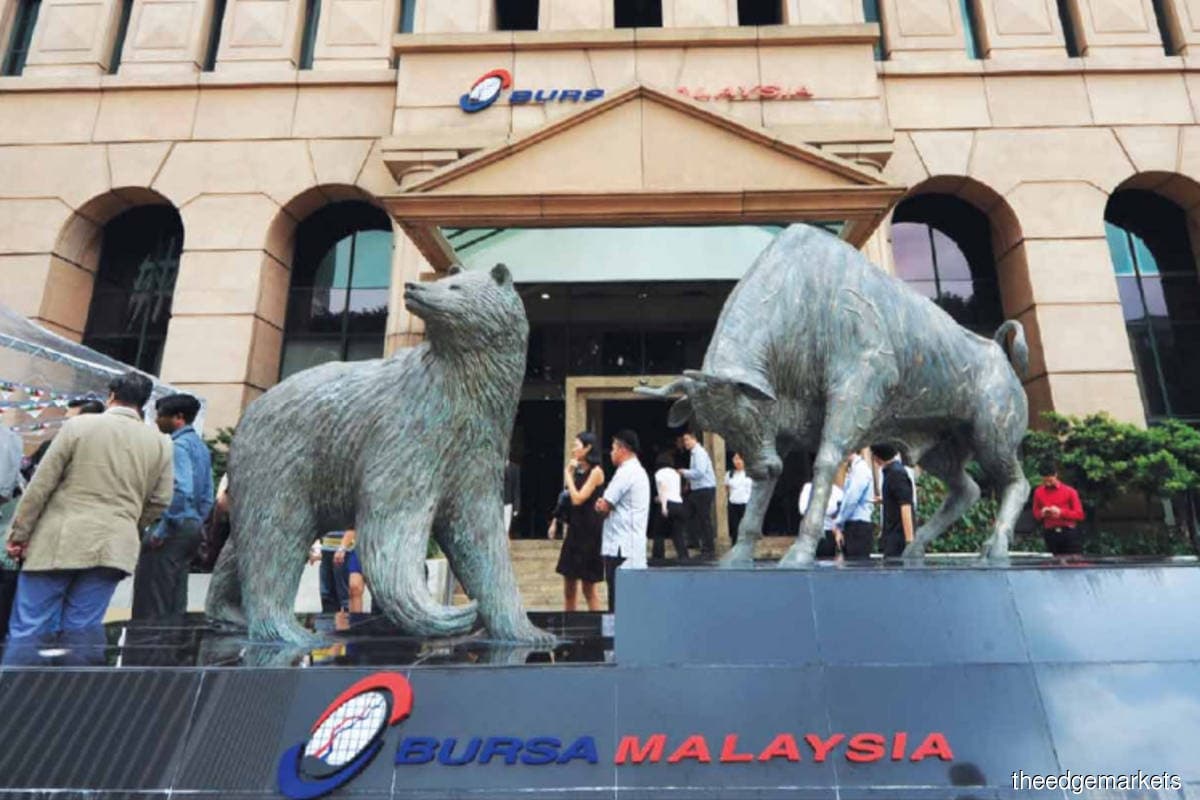
This article first appeared in The Edge Malaysia Weekly on July 20, 2020 - July 26, 2020
ON July 3, 2008, at the height of the global financial crisis, equities trading on Bursa Malaysia was halted for the entire morning session, owing to multi-hardware failure on its core trading system.
The surprise trading halt followed a selloff on the local bourse the day before, when the benchmark FTSE Bursa Malaysia KLCI plunged as much as 25.74 points, or 2.2%, to 1,149 points intra-day. Last Thursday, the stock market was hit by an outage once again. It coincided with selling pressure on the market after Top Glove Holdings Bhd had just resumed trading at 3.30pm following a brief suspension to announce that the US Customs and Border Protection had detained shipments of two of its subsidiaries.
When Top Glove resumed trading, its share price fell RM2.10, or 9.63%, to RM19.70, making it the biggest loser on Bursa.
Then, all trading was halted on Bursa, with the exchange blaming “technical issues” for the outage but providing no details.
“The trading glitch is coincidental and, some might say, timely, despite the circumstances. The FBM KLCI could have come off 25 to 35 points had it not happened,” say a market observer.
The following day, in a series of announcements, the bourse operator and regulator told investors to ignore the KLCI’s previous closing value, as it had been revised to 1,565, following the revision of Top Glove’s closing price from RM21.24 to RM19.70.
Despite the suspension of trading, Bursa recorded 9.3 billion transactions worth RM4.22 billion last Thursday. Had it not been for the technical glitch, a higher volume of securities would have been traded.
The outage upset investors, who say Bursa Malaysia should have the best system to handle the rising volume of trades.
“This glitch should not have happened. Even if they had concurrent orders keyed in to the platform or concurrent orders to ‘one’ single counter, it should not halt trading on all other stocks. I find it unfair and embarrassing,” says a fund manager contacted by The Edge.
Bursa Malaysia spent almost RM20 million in 2019 for maintenance of its IT systems, more than the RM18.3 million spent in 2018. In 2017, the capital market intermediary spent RM19.6 million to maintain its IT infrastructure.
Nevertheless, technical glitches happen at stock markets around the world, including at giants such as the New York Stock Exchange, Deutsche Boerse, Tokyo Stock Exchange and Shanghai Stock Exchange.
On Oct 9, 2018, The Tokyo Stock Exchange Inc encountered a partial connection failure with one of the channels connecting its stock trading system to brokerages. Several brokerages reported transaction delays.
On Aug 12, 2019, a technical glitch suffered by a key stock market data feed run by the New York Stock Exchange led to delays by the stock market operator in releasing the end-of-day values of the Dow Jones Industrial Average and the Standard & Poor’s 500.
So far this year, two major stock exchanges have experienced technical glitches.
On April 14, trading on the Frankfurt stock exchange was halted for more than four hours on Deutsche Boerse’s platforms. Stock market operations in Vienna, Budapest, Prague and the Balkan countries were also affected.
A few days later, on April 20, a technical glitch caused by system upgrading on the Shanghai Stock Exchange resulted in erroneous pricing of the CSI300 index and at least two other Chinese equity gauges.
Save by subscribing to us for your print and/or digital copy.
P/S: The Edge is also available on Apple's AppStore and Androids' Google Play.